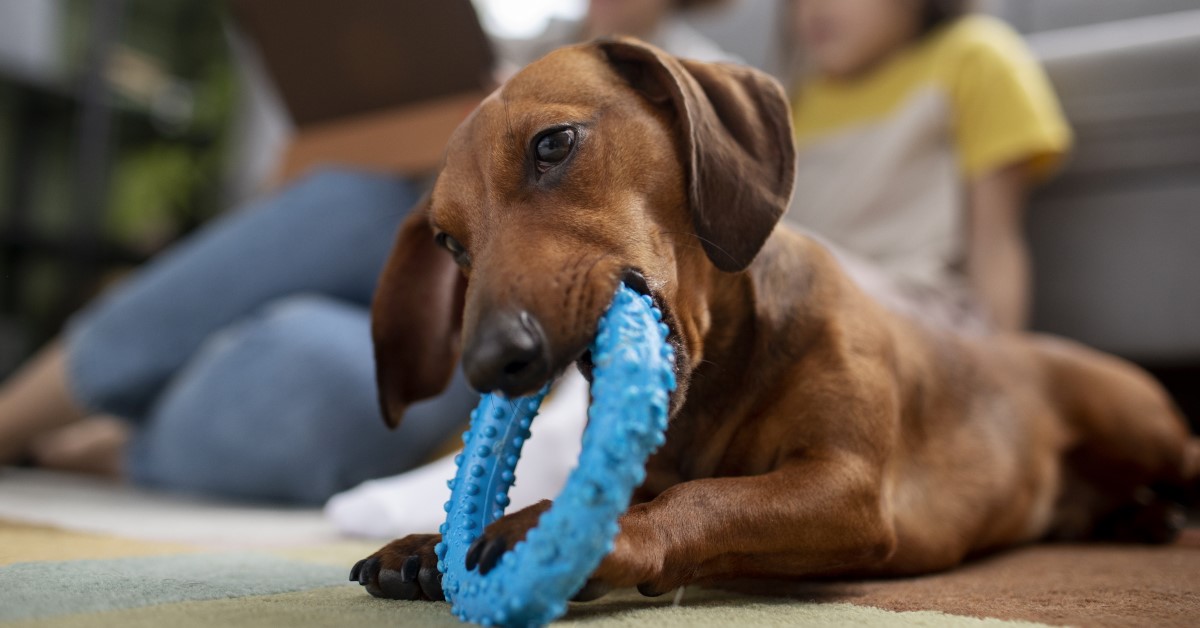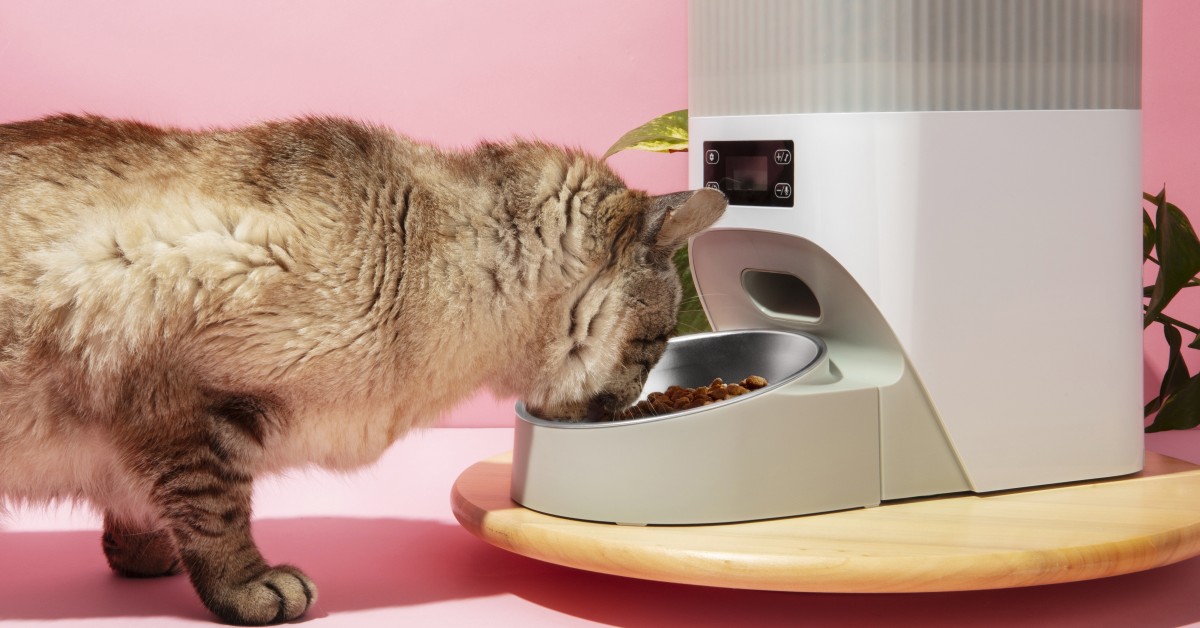How to Choose Safe Dog Toys for Your New Puppy
The right dog toys will help keep your puppy entertained without posing a safety risk.

Bringing home a new puppy can be both an exciting and nerve-wracking experience. Of course, you want to keep your puppy safe, but it isn’t always easy with potential hazards at every turn. Even certain dog toys may appear seemingly harmless but could actually pose a threat to your young pup. Knowing what features to look for in puppy toys and which to avoid can help keep your new pet safe and content. Read on to learn how to choose safe dog toys for your new puppy.
Factors to Consider When Buying Dog Toys
Dog toys can help fight off boredom in rambunctious pups and provide comfort in times of stress. They can also serve as a useful training tool if offered as a reward for good behavior. However, not all dog toys on the market are suitable for all puppies. When comparing dog toys, consider the following:
- Size of the Puppy: The size of your new puppy should be a major factor in your choice of dog toys. If you have a large breed dog, avoid toys that are too small and could become a potential choking hazard.
- Activity Level: Puppies tend to be high energy, some more than others. Keep this in mind when choosing toys.
- Style of Play: Like their human companions, dogs prefer certain styles of play. While some love to play tug-of-war, others enjoy the challenge of puzzle toys or want to play “keep away” with their owners.
- Home Environment: Some types of dog toys are not suitable for indoor environments, such as frisbees, while indoor dog toys like plush toys can collect harmful bacteria if left outdoors in the elements.
Safe Dog Toys for Puppies
One of the most important aspects to consider when choosing dog toys for a new puppy is the material. Natural rubber is often recommended for young puppies as it is softer than regular rubber products but less likely to tear and break than poor-quality rubber products.
Plush toys are often safe for puppies with proper supervision. The soft material is gentle on puppy teeth and these toys can usually be machine-washed to keep them free of harmful bacteria. However, if you have a large puppy or power chewer, use caution as the toys could break, releasing fluff that could pose a choking hazard.
Modern dental chews can also provide entertainment for young puppies and relief while teething. In recent years, the manufacturing process has changed when producing dental chews for dogs to ensure that the material softens and dissolves when it comes into contact with saliva.
Puzzle toys are an excellent option for puppies as they present a healthy challenge. Opt for puzzle toys made of resilient rubber or plastic. Put small treats into each hole in the puzzle and your puppy can spend time “working” for their reward by pawing, licking, and rolling the toy around.
Most importantly, you want a dog toy that is fairly indestructible. Puppies can be hard on new toys and if the toy is not durable, it could break, leaving behind small pieces that your puppy may try to eat. Look for dog toys that cater specifically to aggressive chewers.
Dog Toys That You Shouldn’t Give Your Puppy
While you should always supervise your puppy during playtime, there are certain types of dog toys you should limit or avoid for your pet’s safety. This includes toys that have ribbons, strings, rubber bands, feathers, and other small embellishments that your dog could possibly remove and consume.
When comparing dog toys, avoid toys that may contain harmful toxins. Some dog toys on the market contain heavy metals, preservatives, dyes, and fire retardants that could cause harm to your pet. If you’re not sure if a toy is harmful, try giving it a good sniff. These types of dog toys often give off a noticeable chemical odor.
Other things to avoid include dog toys that have sharp corners or components. Puppies could scratch, cut, or otherwise wound themselves when playing with sharp toys.
While many materials used for dog toys are relatively safe, there are a few to avoid. Wood dog toys can splinter and shred over time. These small wood shards could cause injury to your pup’s mouth or make their way into the animal’s throat, stomach, or digestive system.
Dog chews can also provide young puppies with entertainment, but you want to use caution when choosing chews. Bone marrow and pig ears can increase your pet’s risk of intestinal illnesses due to the grease content. You’ll also want to avoid rib bones, cow hooves, and poultry bones that could splinter or even fracture a tooth.
Choosing a Safe Dog Toy for Your Puppy
Puppies are always learning and interacting with their surroundings. Providing your new pet with safe, durable toys is an excellent way to help your pup release pent-up energy, develop their motor skills, and learn more about their environment. Like humans, puppies have their own preferences when it comes to toys. However, this doesn’t mean that you should give your dog toys without first determining if they’re safe.
In addition to choosing safe toys, you’ll also need to regularly inspect them. Dog toys can wear down over time and present certain risks to your pet. Some toys will need to be repaired or replaced to prevent potential illnesses or accidents.
Ready to start saving money on pet wellness care?
Then take a look at Mint Wellness, the pet wellness plan that provides fast reimbursement on routine pet care. Save on vaccinations, wellness exams, preventatives, dental, and more!
Learn More


